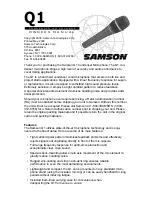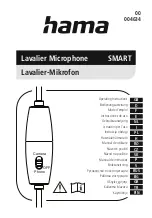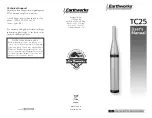
32
13. Troubleshooting
By purchasing the complete radio microphone set, you have acquired a product which has been designed
to the state of the art and is operationally reliable. Nevertheless, problems or faults may occur. Therefore,
we would like to describe how to eliminate possible faults here:
Please observe the safety instructions!
Device does not work after the POWER switch (2) has been switched on.
• The power pack unit has not been plugged into the socket correctly
• The power unit connection line is properly connected to the device’s DC IN (13) socket.
• The mains socket is not supplied with power.
The display in the POWER switch (2) at the receiver is lit, but no sound can be heard.
• The receiver is not properly connected to the subsequent audio device.
• The wrong input is used at the subsequent audio device.
• The transmitter/s is/are not switched on.
• The transmitter batteries are flat.
• The volume control at the receiver or the subsequent audio device is set incorrectly.
A transmitter cannot be switched on.
• The batteries are flat. Replace the batteries.
There is some interference with the radio transmission or there is no reception.
• There is a strong source of interference (e.g. radio devices, computer, strong electric motors) in the
vicinity of the transmitters or receiver.
• There are radio wave barriers in the transmission path (metal surfaces, reinforced concrete walls,
etc.).
• The system range is exceeded.
• The transmitter batteries are flat.
• Another radio-based device interferes with transmission. Try another channel setting.
• The aerials are not ideally aligned. Try realigning the aerials.
















































